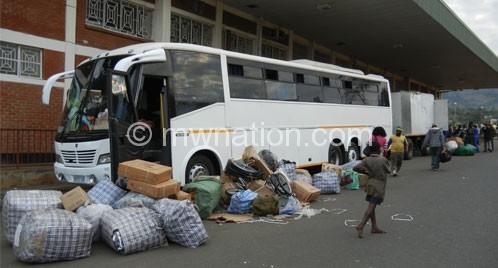Malawi must encourage NTBs removal—expert

Malawi must encourage the removal of non- tariff barriers (NTBs) in Comesa and Sadc to create seamless trade, an expert has said.
National Working Group on Trade Policy chairperson Geoff Mkandawire told Business News Sunday in reacting to the 2013 World Trade Report that there is a growing use of NTBs being used for protectionism.
“It is apparent that economies are now using NTB to protect their local industries because the emergence of free trade areas has removed most tariff barriers. It is important that Malawi works with other member States in the region to remove not only tariff, but also non-tariff barriers.
“The removal of these barriers must, however, be done according to agreements and it must ensure that the country moves at the pace with other members States,” he said.
Mkandawire, however, noted that other economies abuse technical standards such as sanitary and phytosanitary and use them as a trade barrier to protect their local industries.
In the 2013 World Trade Report launched last week, World Trade Organisation (WTO) director general Pascal Lamy noted that the world trade is experiencing an increasing influence of non-tariff obstacles to trade.
He noted that successive WTO negotiating rounds, bilateral trade agreements and unilateral trade opening have significantly reduced the relative weight of tariffs in global trade, but it is becoming clear that creating new trade opportunities and reducing the cost of trading will require addressing NTBs.
“A clear trend is emerging where NTBs are less about shielding producers from import competition and more about protecting consumers. In many cases, these measures are important and necessary.
“The new NTBs typically address concerns over health, safety, environmental quality and other social considerations. The danger is that these measures may sometimes be misused for protectionist purposes. Even when not used for protectionist reasons, the use of NTBs may result in differences between regulatory systems that can substantially raise trade costs and reduce or distort trade flows,” said Lamy.
Lamy said that cooperation should remain a priority, noting that economies should recognise that imports are an essential ingredient of a country’s export competitiveness.
He argued that the key is not how to export more, but how to add more value and to use trade to expand a country’s economy more quickly.
Lamy also noted that economies should prioritise to reduce the impact of NTBs barriers by achieving regulatory cooperation and by avoiding their use for discriminatory purposes.
The Tripartite Free Trade Area earlier this year launched an on-line NTB reporting mechanism aimed at monitoring and eliminating technical and other non-quantitative barriers to trade occurring in the region.
Ministry of Industry and Trade spokesperson Wiskes Nkombezi, commenting on NTB’s initiative in the region, noted that the system will create seamless international trade among the members through the elimination of NTBs.
He argued that the system will help speed up trade between Malawi and trading partners within the three trade blocs.
Nkombezi noted that Malawi will particularly benefit because being a land-locked country, traders sometimes face NTBs in transit to the sea and, as such, the system will increase
efficiency in the movement of goods, reduce the cost of doing business and improve Malawi trading capacity with its partners.
He added that the web-based.
NTBs mechanism will enhance transparency and easily follow up on reported and identified NTBs.
NTBs refer to restrictions to trade that result from
prohibitions, conditions, or specific market requirements that make importation or exportation of products difficult and therefore costly.
NTBs also include unjustified application of non-tariff measures such as sanitary and phytosanitary measures and other technical barriers to trade.
Specifically, NTB may include import, quotas, discriminatory rules oforigin, quality conditions, sanitary and phytosanitary conditions, regulatory environment, eligibility of an exporting establishment, additional trade documents, over-valued currency seasonal import regime and corrupt and lengthy customs procedures.
Thus, with quantitative barriers or tariff barriers on the decline across the three regions and globally, economies are sometimes tempted to use these technical barriers to protect local industries.
That is, governments or any other authorities may use laws, regulations, policies, conditions, restrictions or specific requirements, and private sector business practices, or prohibitions that protect the domestic industries from foreign competition and hence defeating the whole purpose of trade liberalisation.





